Black Dollars, White Profits: Why We Must Rethink Who We Enrich
Black Americans control $1.7 trillion in spending power—more than the GDP of entire countries like Australia, Mexico, and South Korea. Yet, that wealth leaves our community within six hours. Meanwhile, Asian, Jewish, and Arab dollars circulate in their communities for weeks. Circulating the Dollar: A Stark Comparison
- The Black dollar circulates 6 hours within its community.
- White: 17 days, Jewish: 20 days, Asian: 30 days.
These disparities speak volumes about collective economic strategy—or the lack thereof.
The problem? We don’t trust each other.
When a Black-owned brand drops a product, we critique the price, question the quality, and hold them to an impossible standard. But we’ll buy overpriced fashion from billion-dollar white-owned brands without a second thought. We’ll forgive bad service from chains but cancel our own at the first slip-up.
We’ve been programmed—mentally trained to mistrust ourselves, each other, and our power.
From Slavery to the Self-Hate Cycle
This mistrust was seeded during slavery and watered post-slavery. Divide-and-conquer tactics—light skin vs. dark, field vs. house—broke us into pieces. Later, Jim Crow, redlining, and economic exclusion sealed it. Then came mass incarceration, media demonization, and the war on Black fathers.
The “Crabs in a Barrel” Myth and Reality
While often used to stereotype, this phrase captures a deeper issue: scarcity mindset. In a system where only a few succeed, internal competition becomes intense. Black entrepreneurs are less likely to be forgiven for mistakes, a reflection of both systemic expectations and intra-community scrutiny.
The result? Internalized racism. We now subconsciously believe white is better. We don’t say it aloud—but our spending, our schools, our churches, and our neighborhoods say it clearly.
Why Jewish, Asian, and Arab Communities Win Together
These communities operate on unspoken codes:
- Trust your own.
- Spend with your own.
- Build for your own.
Jewish communities fund schools and cultural institutions. Korean families support generational stores. Arab grocers keep wealth in the family.
We buy from everyone but ourselves.
It’s time for a mindset shift.
Imagine If Just 10% of Black Spending Stayed Black
If 10% of Black spending ($170 billion annually) went to Black businesses:
- We could create over 500,000 jobs.
- Black banks could offer more loans.
- Poverty rates could drop significantly.
If 30% stayed, we could build our own Wakanda: with our own schools, hospitals, factories, and media networks.
Every percent counts. 10% redirected would shake the foundations of America’s corporate economy.
Banking While Black: The Power of Black Financial Institutions
There are fewer than 20 Black-owned banks in the U.S., including OneUnited Bank (Los Angeles), Liberty Bank (New Orleans), and Carver Federal Savings Bank (New York). Though smaller than giants like Chase or Bank of America, Black banks offer culturally relevant services, community-based lending, and a mission to reduce the racial wealth gap.
Unlike mainstream banks, which often have histories of discriminatory lending practices, Black banks are more likely to approve small business loans for Black entrepreneurs and invest in underserved communities. If just 10% of Black America deposited their money into Black-owned banks, that would equal $170 billion in capital—enough to fund millions in home loans, small business startups, and community revitalization projects.
Banking Black isn’t just a symbolic gesture—it’s economic warfare against redlining, disinvestment, and financial exclusion.
Black Culture Is America’s Pulse
Black culture fuels fashion, slang, beauty, and rhythm. Hip-hop is the #1 genre in the world. Our style shapes TikTok trends. Our hair influences global beauty standards. We create cool—but rarely profit from it.
Look at fashion:
- Yeezy reshaped sneakers.
- Dapper Dan dressed icons before Gucci even acknowledged him.
- Rihanna’s Fenty empire proved we want diversity—and we’ll pay for it.
But how much of that wealth ends up in Black communities?
Hollywood, Tyler Perry & The Black Entertainment Blueprint
Hollywood ignored Black stories until they were profitable. Tyler Perry broke the system by building his own. His studio, built on old Confederate grounds in Atlanta, is one of the largest in the country.
Tyler Perry makes films for us, with us, and by us. And they perform. “Madea” films have grossed over $1 billion, mostly with little to no mainstream marketing. His TV shows are streaming gold. BET+ owes its survival largely to his content.
More than that, Perry gives back:
- He’s known to pay off Christmas layaways for strangers.
- He donates to Black colleges and families in crisis.
- He hires, trains, and pays Black talent well.
Tyler Perry is a model for what Black business should look like: ownership, excellence, reinvestment.
If more Black consumers financially supported Black films, streaming networks, and studios, the economic shift would rival Hollywood’s current dominance. We’d write our own narratives and cash our own checks.
Black Athletes, Billion-Dollar Leagues & The Big3 Movement
Over 70% of NFL players and nearly 75% of NBA players are Black. Yet we don’t own the teams, the stadiums, or the media rights. Our bodies make the money, but our communities don’t see it.
What if we had our own leagues?
Ice Cube’s Big3 basketball league is a glimpse into that possibility. Black-owned, player-empowering, and fan-focused—it proves we can create and sustain sports entertainment on our own terms.
Imagine:
- Black-owned football and basketball leagues.
- Community-funded stadiums.
- Media channels run by us, for us.
The financial impact?
If just 25% of Black fans redirected ticket, merch, and streaming dollars to Black leagues, the NFL and NBA could lose billions annually. Meanwhile, Black-owned leagues would grow into cultural and economic powerhouses. Media rights alone—worth tens of billions—would shift to Black-owned networks. The narrative and the revenue would finally belong to us.
Media, Movies, and Streaming Power
Black audiences are the most active streamers, moviegoers, and content consumers. If we redirected our subscriptions and box office dollars to Black platforms and creators, we could:
- Build a thriving independent studio system
- Fund more diverse stories
- Retain ownership of our intellectual property
This would weaken Hollywood’s chokehold and diversify the global storytelling market.
What If We Moved to Africa?
Ghana’s “Year of Return” campaign welcomed Black Americans with open arms. So did Rwanda, Nigeria, and South Africa.
If just 10 million Black Americans returned to Africa:
- We’d bring knowledge, tech, and capital.
- African economies like Ghana and Nigeria would explode with innovation.
- U.S. GDP would take a hit—especially in sports, media, and service sectors.
With $1.7 trillion in buying power, if even 25% of that shifted to Africa, U.S. GDP could shrink by nearly $500 billion over time.
Meanwhile, African GDPs would rise. Ghana’s current GDP is around $75 billion. A large-scale Black migration with capital investment could double or triple that in a decade. Nigeria’s tech sector could explode. South Africa’s film industry would become a global competitor.
Mass repatriation isn’t just symbolic—it’s economically revolutionary.
The Prison Pipeline: Modern Slavery
Over 40% of the U.S. prison population is Black. Many are there for nonviolent crimes, with biased sentencing and little opportunity for redemption.
Private prisons profit off Black pain. More arrests = more money.
This strips us of fathers, voters, workers, and consumers. It also ensures economic stagnation in our communities. Every incarcerated Black man is one less entrepreneur, father, and homeowner.
Colorism, Voting, and Mental Chains
Colorism divides us further. Light vs. dark. Good hair vs. bad. Pretty vs. ghetto. This comes from colonization, slavery, and media. We internalize white beauty standards while erasing our own.
Politically, our votes swing states—but gerrymandering, felony disenfranchisement, and voter ID laws silence us. (Gerrymandering = redrawing voting maps to weaken Black districts.)
Still, when we do vote—change happens. Georgia’s senate runoff proved that.
Where Do We Start?
- Buy Black once a week.
- Bank Black.
- Mentor a young entrepreneur.
- Challenge your biases.
- Fund Black media.
- Support Black sports and entertainment leagues.
We are not each other’s enemy. The system is. And the greatest rebellion is unity.
Final Word: We Are Americans. And We Are the Blueprint.
Black Americans are not outsiders to this nation—we are its very backbone. We built the railroads, picked the cotton, birthed the blues, shaped hip-hop, electrified the NBA, dominated fashion, innovated tech, and brought soul to everything in between.
Yet despite all this, we are systemically mistreated, underrepresented, and economically gatekept. We’re often held hostage by stereotypes, criminalized by fear, and blocked from ownership by quiet policies and loud prejudice. Meanwhile, the same America that marginalizes us—cosplays our culture, hijacks our ideas, and profits from our rhythm without honoring our blues.
This is the essence of the culture vulture: those who consume Black creativity and innovation without credit, compensation, or commitment to the community it came from.
Imagine what could happen if the wealth of this country were truly shared—if white America and others didn’t just borrow our flavor, but invested in our future. America would be stronger, more dynamic, and more unified.
But if the message continues to be, “Go back to Africa,” then understand this:
If we go—we take our $1.7 trillion, our artistry, our ingenuity, and our culture with us.
And what would be left?
An America without rhythm. Without culture. Without its soul.
Our value is not in question.
The only question is: Will we finally recognize our own worth and invest in it?
Support Black. Trust Black. Build Black.
The future isn’t theirs to give. It’s ours to create.
#BuyBlack #BlackWealth #AmIMyBrothersKeeper
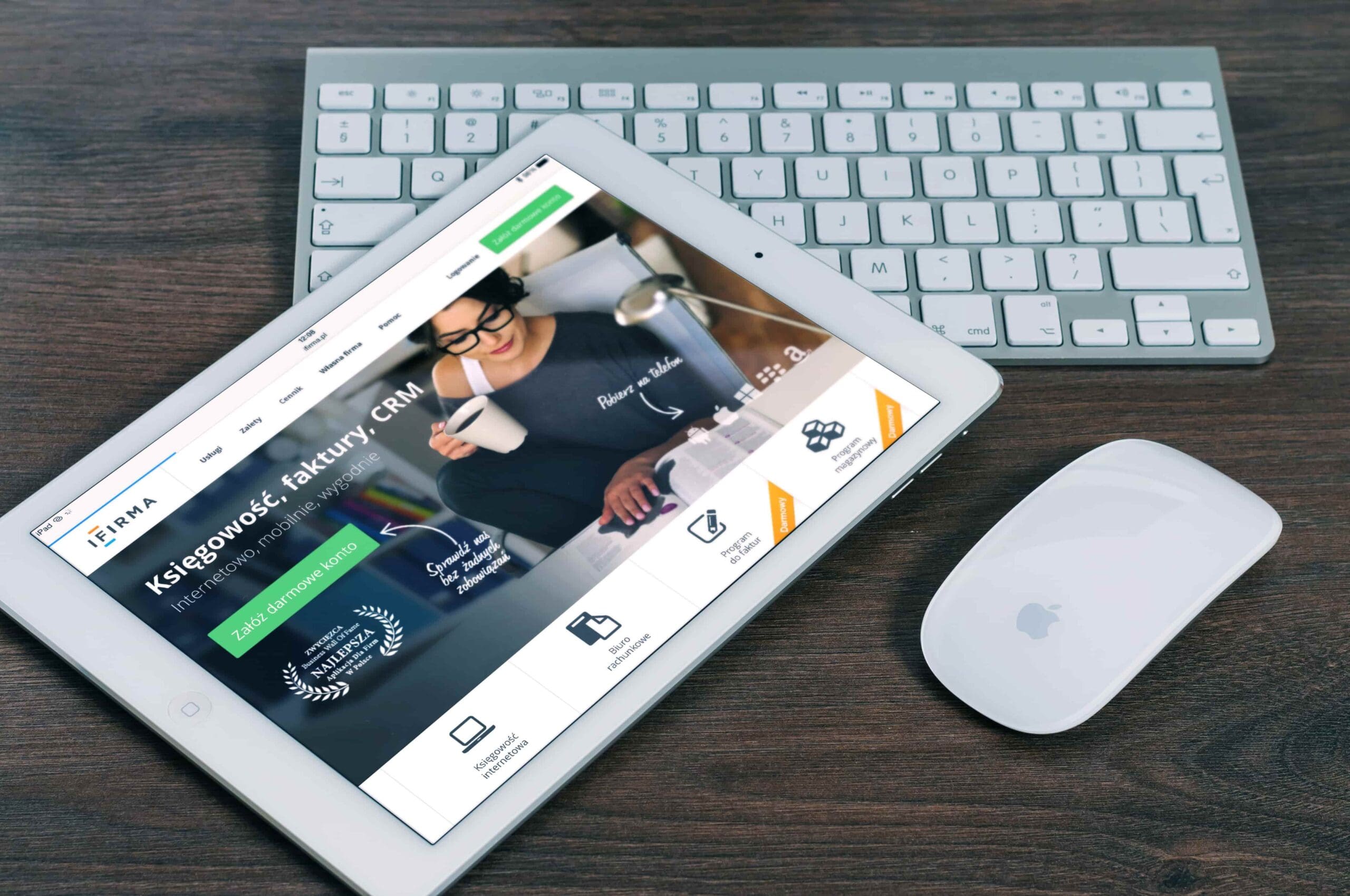
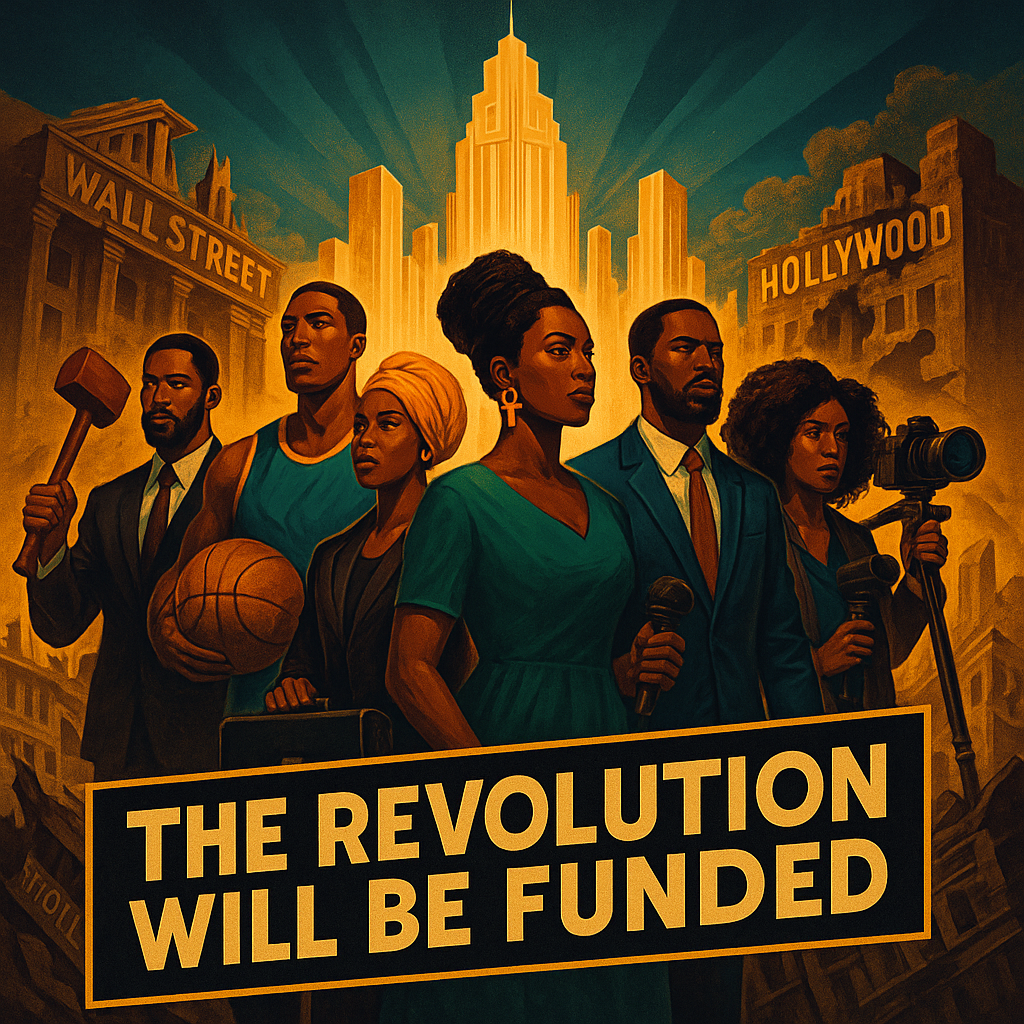
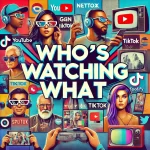
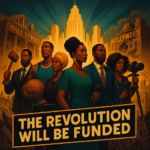
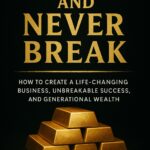


Leave a Reply